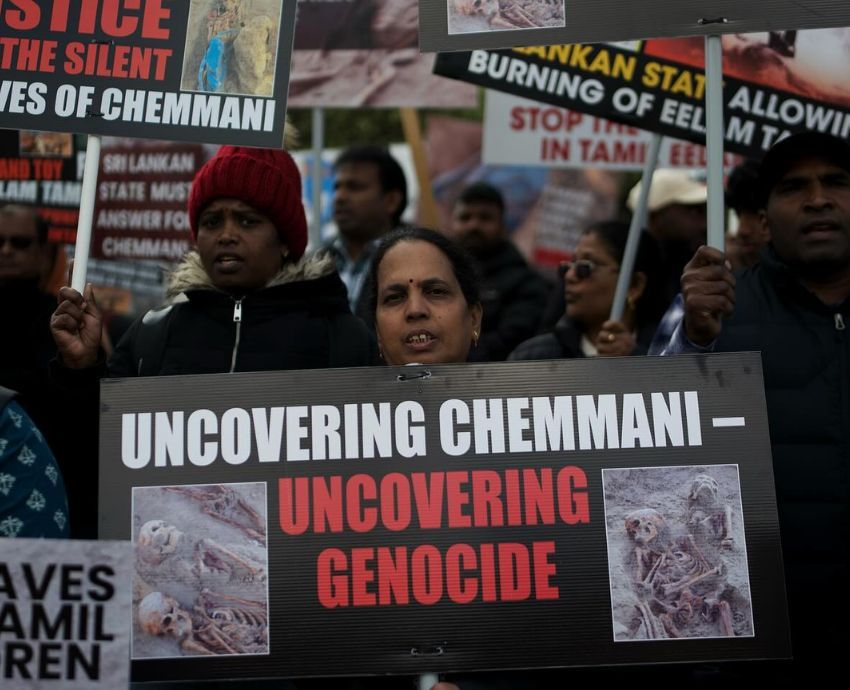
The recent discovery of a mass grave at Chemmani, in Sri Lanka’s northern Jaffna district, has ignited a wave of protests by Tamils across several towns in the north and east demanding an investigation by international forensic experts. Believing that the victims were killed by the Sri Lankan military, Tamils do not trust the Sri Lankan government to carry out an honest investigation.
The uncovering of the Chemmani site is just one of many — numerous mass graves have been found following the war between the Sri Lankan government and the Liberation Tigers of Tamil Eelam (LTTE), who were fighting for an independent Tamil homeland.
The military defeat of the LTTE in 2009 was accompanied by a genocidal massacre of Tamil civilians by the Sri Lankan armed forces.
Parallel to the demands for an independent forensic investigation is a long-standing call for the release of political prisoners. Under the draconian Prevention of Terrorism Act (PTA) — introduced in 1979 — many people, mainly Tamils, have been imprisoned for more than 30 years without trial or due process.
A symbolic signature campaign was launched in Jaffna on July 21 calling for the repeal of the PTA, while protests against the law continued in other Tamil areas.
A new government was elected last year, and President Anura Dissanayake pledged to improve the treatment of Tamils, promising truth-seeking processes and legal reform, including the repeal of the PTA.
Yet, according to reporting by the Tamil Guardian, little concrete progress has been made. The PTA remains in force and political prisoners remain incarcerated.
A small sign of engagement came recently when a delegation — which included relatives of political prisoners — met with justice minister Harshana Nanayakkara last month. He expressed sympathy and promised to bring the issue to the attention of the president.